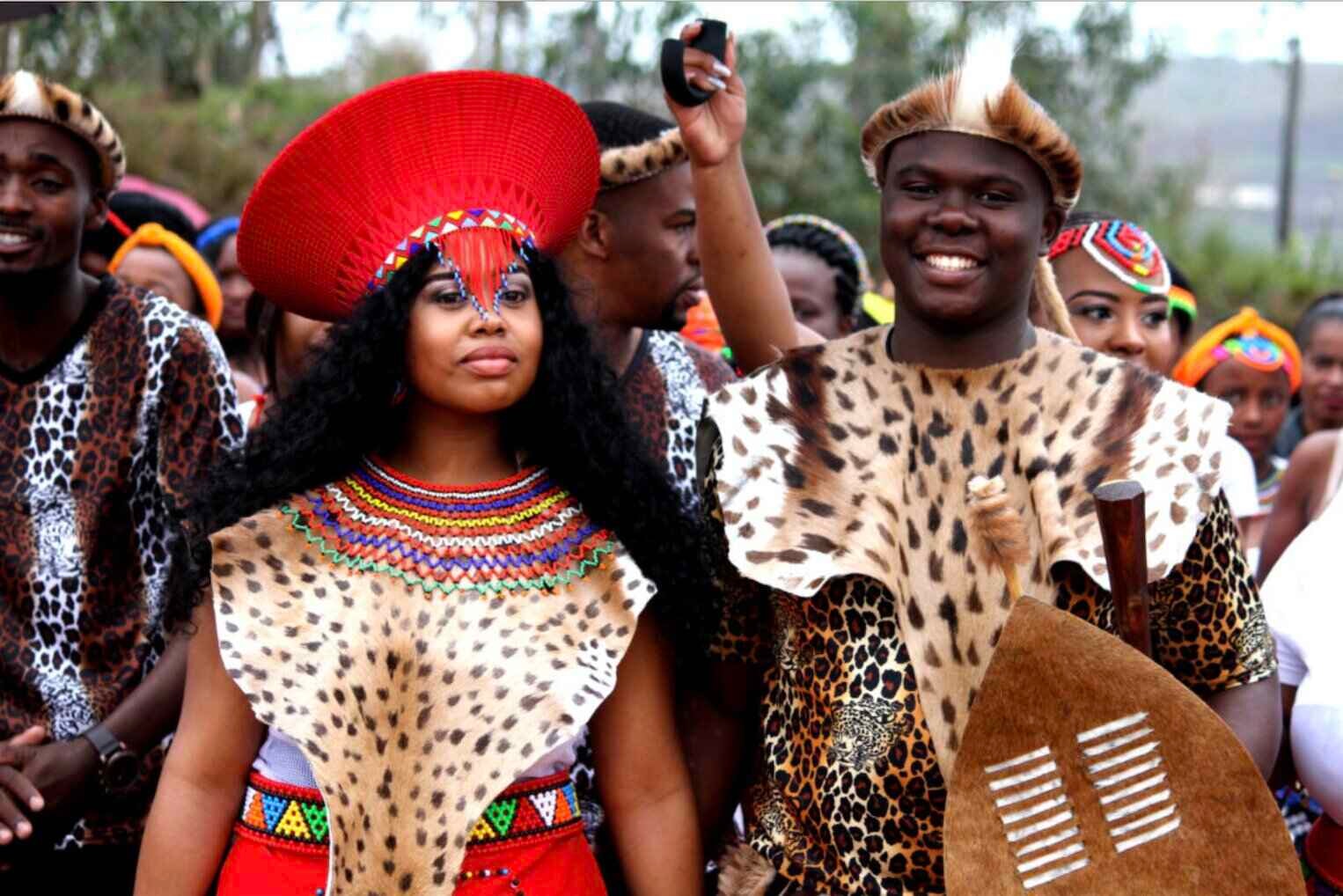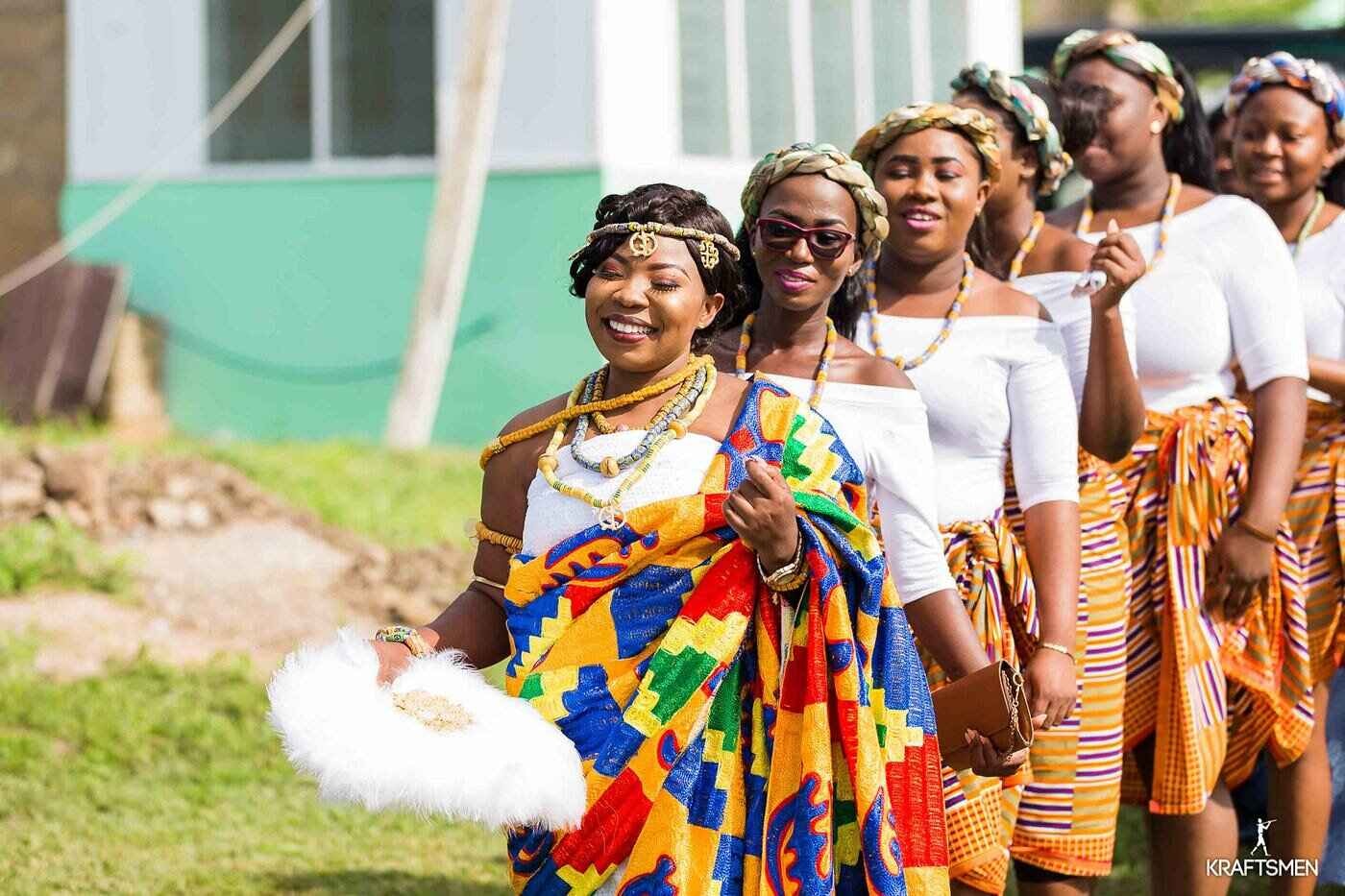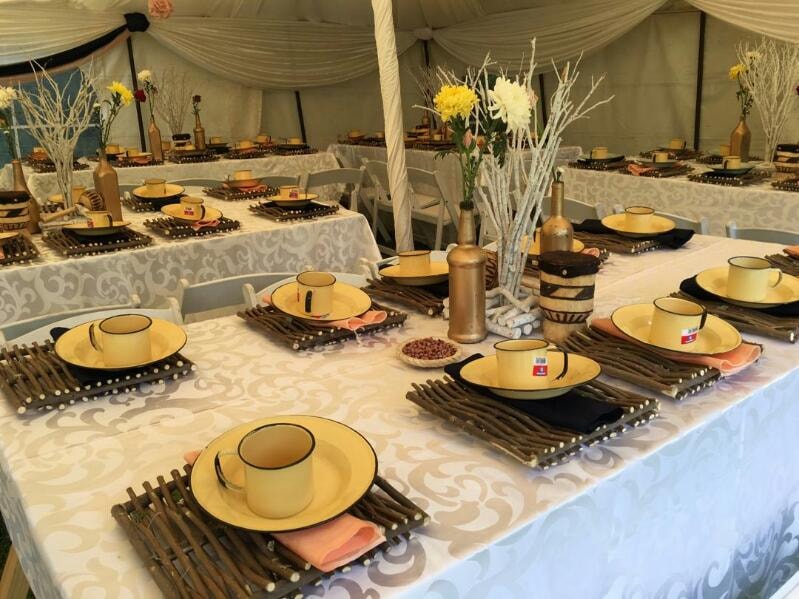In effect since November 2000, the Recognition of Customary Marriages Act (customary law) governs the registration and legal acknowledgment of customary marriages in South Africa. This act ensures marriages conducted according to customary law are legally recognized.
A customary marriage, also known as a traditional marriage, is defined as a marriage that is negotiated, celebrated or concluded according to any of the systems of indigenous African customary law which exist in South Africa.
The marriage must respect the cultural norms and values of the parties involved.

Unlike civil marriages, which require monogamy, customary marriages can include polygamous unions.
Outline
1. Requirements for a valid customary law marriage

Certain requirements must be met for a customary marriage to be considered valid in accordance with customary law. To make a customary marriage valid, these include:
mutual consent,
both prospective spouses to be above 18 years old, and
negotiation and celebration of the marriage according to cultural norms.
1.1 Mutual consent to the marriage and age requirement
Consent is crucial for the validity of a customary marriage.
Each prospective spouse must be legally competent to marry, meaning the two spouses cannot be close blood relatives.
Individuals must be at least 18 years old (ie consenting adults) to enter a customary marriage without parental consent. If one party is a minor, consent must be secured from both parents or her legal guardian for the customary marriage.
This ensures that the valid marriage is entered into willingly and legally.
1.2 Negotiation and celebration
Negotiation and celebration are integral parts of customary marriages. The marriage must be negotiated and celebrated following the traditional customs of the couple’s communities. This typically involves discussions and agreements between the bride’s family and the families of the prospective spouses, highlighting respect for cultural practices.
Lobola, or bride price, is a traditional practice that forms part of lobola negotiations. Celebrating the marriage is essential, emphasizing the joy and communal support associated with the union.
The payment of lobolo is not a specific requirement in terms of the Act, but it is considered to be part of practice when concluding a customary marriage.
1.3 Registration
The Department of Home Affairs office also lists registration as a critical step towards validating a customary marriage in South Africa.
It requires participants to register a customary marriage within three months of the ceremony taking place. This can be done at any office of the Department of Home Affairs or through a designated traditional leader in areas where there are no Home Affairs offices.
The registration of a customary marriage ensures its legal recognition. Failing to register such marriage can affect its legal recognition and lead to uncertainties regarding the marital status.
Previously, before the famous HHP case, all customary marriages needed to be registered in order to be valid. However, registration is no longer a requirement and parties can now institute divorce proceedings on a strength of a lobola agreement.
1.4 Does the payment of Lobola mean that we’ve entered into a valid customary marriage?
No. In South Africa, courts have recognised that a lobola letter and lobola negotiations, while significant, should not be treated as a the sole criterion for determining the validity of a customary marriage.
There have been instances where the courts have validated marriages where lobola payments were incomplete, underscoring the importance of considering the broader context and circumstances.
Whilst lobola negotiations have been considered an essential component of a customary marriage, the Customary Marriages Act itself does not explicitly require lobola as one of the requirements for a valid customary marriage entered into. Instead, it acknowledges that various communities have different practices, and it aims to respect and uphold those traditions. Usually, lobola is followed by celebrations, which satisfy the requirements of a valid customary marriage.
2. Assets in community of property

Protecting all the assets in a customary marriage is crucial for couples to avoid potential future disputes. A customary marriage in South Africa automatically places all assets and debts in a joint estate unless a specific prenuptial contract is established.
A customary marriage is automatically classified as in community of property, meaning both partners share all assets and liabilities acquired before and during the marriage. This regime ensures that both spouses have equal rights over all marital property. In the absence of a prenuptial contract, this is the default property regime, meaning assets and debts are shared equally. When entering into additional customary marriages while already being married, a court order is necessary to manage the future matrimonial property system.
Historically, women in a customary marriage had limited rights, impacting their status within the customary marriage. The automatic in community of property status, now offers women better rights than before. Which is why both parties will be required to sign if one decides to acquire debt.
2.1 Prenuptial contracts
Prenuptial contracts are legal agreements entered into by couples before marriage that outline the ownership of assets and property rights. These contracts allow couples to choose a property regime that best suits their financial situation, avoiding the default community of property regime.
In the absence of an prenuptial contract, a customary marriage is automatically governed by the community of property regime.
3. Ending a customary marriage

According to customary law ending a customary marriage requires a formal court procedure, similar to civil marriages. It can only be legally terminated through a court-issued divorce decree, ensuring the dissolution is handled legally and fairly, safeguarding both parties’ rights.
A court order is required to dissolve a customary marriage, paralleling the process for civil marriages. Parties seeking a divorce must demonstrate the irretrievable breakdown of the marriage before a magistrate. This formal procedure ensures the divorce is legally recognized and protects both spouses’ rights.
3.1 Unregistered marriages
Failure to register a customary marriage within three months can lead to legal complications regarding its validity. An unregistered customary marriage can result in legal uncertainties, including disputes over property rights and the legitimacy of children born from the marriage.
Ensuring a customary marriage is registered is crucial to safeguarding the legal status of the marriage and the rights of both parties.
3.2 Informal separation and remarriage
Ending an unregistered customary marriage presents complex legal challenges, as informal separations do not constitute legal dissolution. Individuals who separate informally without formally ending their customary marriage may face legal complications if they attempt to marry someone else in future.
Attempting to marry someone else in future without formally dissolving an initial customary marriage can lead to legal complications regarding the validity of the new marriage. Additionally, no further customary marriage can be pursued unless a court order is obtained to regulate the matrimonial property system.
4. Forms and documentation
Proper documentation is essential for the registration and dissolution of a customary marriage. A lobola agreement and / or formal registration with a marriage officer or with a traditional leader must be signed by two witnesses and the marriage officer.
Once the register is signed, a handwritten marriage certificate must be issued by the marriage officer. The marriage officer then submits the register to the Department of Home Affairs.
4.1 Documentation for divorce
A customary marriage can only be dissolved through a court order, similar to civil marriages. This process requires evidence proving the existence of the marriage, such as photographs from the ceremony and signed letters from participants.
Legal representation is often necessary to navigate the court proceedings and obtain a divorce order.
5. Costs associated with a customary marriage

Apart from the lobola payment itself and the usual celebrations that follow, customary marriages entered into, can incur various costs including registration and potential legal fees for divorce.
5.1 Registration fees
The Department of Home Affairs may charge a fee for the registration of customary marriage, which can vary based on the services provided. To register a customary marriage, one must complete Form BI-1699 and pay the requisite fees.
An abridged marriage certificate is issued without any charge when applying for the first time. It is advisable to reach out to Home Affairs offices to get updated information on registration fees.
5.2 Legal costs for divorce
Legal fees for obtaining a divorce order for a customary marriage can vary significantly depending on the complexity of the case. These costs can include court fees, attorney fees, and other associated expenses. Obtaining a divorce order generally involves legal representation to navigate court proceedings, which can further increase the costs.
It is important for individuals to be aware of these potential expenses when considering the dissolution of a customary marriage.
6. Contact information
For assistance or more information on customary marriages, the Department of Home Affairs is the primary point of contact, handling registration and legal matters related to customary marriages in South Africa.
For inquiries, you can reach the Department of Home Affairs by calling 0800 60 11 90 or emailing hacc@dha.gov.za. The Department’s offices are open to the public from Monday to Friday between 8:00 and 15:30, with extended hours on the last Wednesday of each month from 9:00 to 15:30.
The physical address for the Department of Home Affairs includes various regional offices across South Africa. They handle inquiries related to customary marriages and other legal matters.
6.1 Legal assistance
Seeking legal assistance for issues related to customary marriages is essential to ensure proper understanding and adherence to legal implications. The Department of Home Affairs is a primary resource for legal assistance concerning the registration and recognition of customary marriages.
For more detailed guidance, individuals can also consult legal professionals who specialize in family and marriage law.
6.2 Civil marriage /union
A civil marriage exists and is defined as a legally recognised union without religious ceremony between one man and one woman, to the exclusion of all others.
The Civil Union Act allows anyone regardless of their sexual orientation, to marry either through a civil union, a civil marriage or a customary marriage.
Civil unions or a civil marriage may be conducted by:
designated marriage officers for specific religious denominations or organisations
designated officers employed by the Department of Home Affairs and the Magistrates’ Courts
- At least two competent witnesses must be present at the ceremony.
Requirements for registering civil unions or a civil marriage
Both persons must be 18 years or older to enter into civil unions
Both persons may not be already married in terms of any other Act.
The Customary Marriages Act allows a person to have more than one marriage with different persons at the same time (polygamous marriages). Polygamous marriages can only be legal if all the marriages are customary marriages. A person is not allowed to have a customary marriage and to enter into a civil marriage at the same time with different parties; however, a couple who is married with each other in terms of customary law, may enter into a civil marriage with each other as well.
7. Summary
Customary marriages are a significant aspect of cultural heritage, recognized under South African law.
Customary marriages in South Africa require adherence to cultural practices and must be registered within three months to ensure legal recognition.
Lobola remains a significant indicator of intention but is not the exclusive factor in establishing a valid customary marriage.
Key requirements include participants to be over 18 years of age, mutual consent (or consent from a legal guardian if below 18 years), lobola negotiation and celebration.
Assets in customary marriages are typically shared under community of property unless an prenuptial contract is established to outline specific property rights.
Even though not registering the customary marriage does not invalidate the marriage where there is one husband and one wife, it does invalidate the marriage if the husband is marrying a second wife after the commencement of this Act. Therefore, registration is encouraged as it constitutes prima facie proof of the existence of a customary marriage.